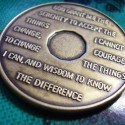Intervening in lives of children with alcoholic parents group's goal
“A little 8-year-old boy told me that his mother was a drug addict. She would use drugs and pass out.
“He told me he would carry his little baby brother down the street to the store to buy milk and feed the baby because his mom was passed out.”
Tammy Grantz, Prevention Workz executive director, said this isn’t an unusual story about children of an alcoholic parent. The number of children affected by alcohol abuse by a parent is estimated in the millions, she said.
This week is National Children of Alcoholics Week, which has a goal of raising awareness of the plight of these children.
According to the National Association for Children of Alcoholics, there are an estimated 28.6 million Americans who are children of alcoholics, nearly 11 million under age 20.
Being a child of an alcoholic can lead to many problems, she said.
Children of addicted parents exhibit symptoms of depression and anxiety more than do children from non addicted families and experience greater physical and mental health problems and higher health and welfare costs than do children from non addicted families, she said. They also have a high rate of behaviour problems.
Children of addicted parents also tend to score lower on tests measuring school achievement and exhibit other difficulties in school. Children of alcoholics tend to score lower on tests that measure cognitive and verbal skills. They also are more likely to be truant, drop out of school, repeat grades or be referred to a school counselor or psychologist.
“One thing we can do to help is intervene,” Grantz said. “Research shows just having one caring adult in a child’s life can help them reduce these problems. These adults can listen and care. They can listen to the child if they are having a bad day or are confused. We should also try to get them in programs to help them understand their parent’s addiction is not their fault and that they can choose other options and change their lives.”
Children with alcoholic parents are more likely to be abused or neglected.
A relationship between parental addiction and child abuse has been documented in a large proportion of child abuse and neglect cases. According to NACA, hospital admission rates for children of alcoholics are substantially higher than rates for children from non alcoholic families; for substance abuse, the inpatient admission rate is three times that of other children; for mental disorders, the rate is almost double.
“Most parents that are alcoholics or addicts, they care more about their addiction than their children,” Grantz said. “Parents will often drink until they pass out and the child must look after themselves. They may have to feed themselves, dress themselves and put themselves to bed. Children have to become a parent at a young age and often have to take care of their parent.
“If the parent is passed out, their child may put a pillow under their head and cover them up to sleep instead of the other way around. They don’t know how to be kids. They haven’t been given the opportunity.”
Children of alcoholics also are more likely to become alcoholics as they grow up.
Families with alcohol and drug problems usually have high levels of stress and confusion. High stress family environments are a risk factor for early and dangerous substance use.
NACA estimated more than 50 percent of today’s alcoholics are the children of alcoholics and are more likely than non alcoholics to have an alcoholic father, mother, sibling or other relative.
“We know that children that grow up in alcoholic homes are at much higher risks of becoming alcoholics themselves. They have a better chance of growing up happy and healthy in a non addicted home and we want everyone to grow up healthy and happy because that will make them more productive in society. They will be better employees and more involved in the community,” Grantz said.
Youth Opportunity Task Force Drug and Alcohol Subcommittee and Prevention Workz will distribute education informational packets to clergy, educators, physicians and youth-serving organizations during National Children of Alcoholics Week.
“We didn’t want to send out a mass mailing because 99 percent of that stuff gets put in the trash,” Grantz said. “We limited it to 50 packets … we know 50 people will be getting and using the information to help at least 50 people in our community.”
source: The Enid News and Eagle


